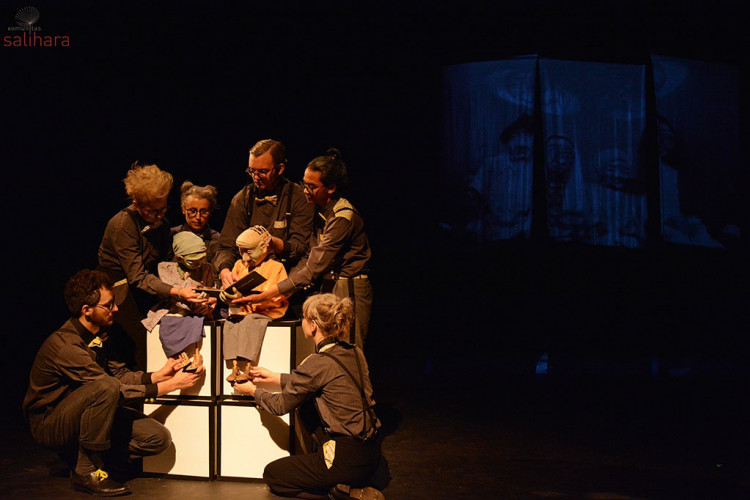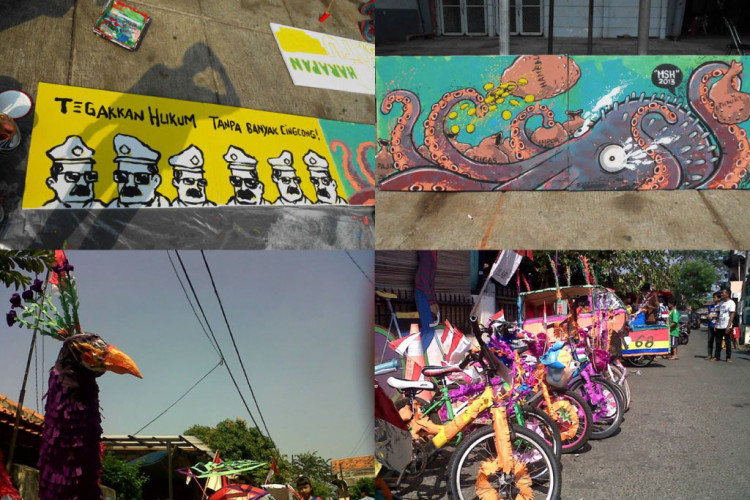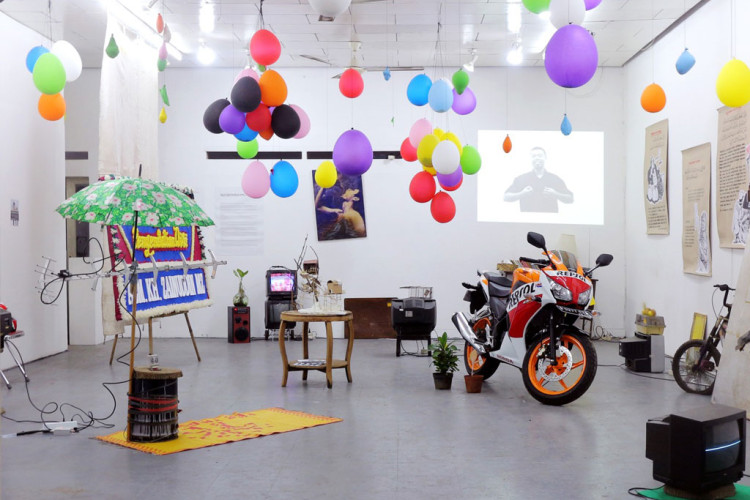


“Hey, baby!”
“Meong (meow)”
“Kok cemberut saja, sih? (Hey, what’s with that frown?)”
Phrases most women in Indonesia, especially Jakarta have heard. It’s one thing if it comes from a movie or a book. But when it’s heard from the side of the road, while someone is walking, there may be a street harassment going on.
“Catcalling” or presumably the mildest form of harassment, is part of the daily encounters in many of Jakarta’s public space. “If we’re looking at statistics, Jakarta sits on number 5 in its proneness to street harassment, compared to New York’s number 16,” Anindya Restuviani (Vivi) stated. Not just streets, supermarkets or schools – the internet is also considered a public space. Harassment could happen to anyone, on a daily basis. It ranges on a spectrum which includes unwanted sexual gestures, involves one to be the subject of “sexting” as well as being forced to physically engage in one. Not to mention, rape being at the most severe end.
Hollaback! Jakarta – a movement where Vivi is actively taking part in, comes to tackle this issue by encouraging people to speak up. Having experienced street harassment first-hand while on her way to work a few years back, Angie, as she prefers to be referred to, initiated the movement in Jakarta. Alongside National Commission on Violence Against Women (Komisi Nasional Perempuan), Lentera Sintas Indonesia and perEMPUan, they initiated Chalk Walk in support for various campaigns including #MulaiBicara. Done on some of the main streets in Jakarta, participants, not limited to women, release their anger by writing their message using chalk. This is done solely on the premise of public space being a safe place for everyone hence reclaiming them will make it more convenient for everyone.
“It is undeniable, though, that 70-80% women are more likely to experience harassment, followed by people who consider themselves as non-binary,” Vivi explained. Though men are commonly associated as the ones who do the harassment, she said it doesn’t hinder the possibility that men are repellent to harassment, too. Sometimes it could also be in the form of comments about our physical appearances.
Tracing it back to history, most people, especially in Indonesia may have acknowledged the ever-growing stigma where victims are subjects to blame. It has begun to develop with victim’s behavior and appearance as the basis of their judgement. Hence, making them reluctant to speak up about their experience – which could be traumatizing, at times. Though it is no surprise to our society, the root may lie within this mindset, in Vivi’s words, where men – no matter how well-educated they are, are more superior than women. Gradually eradicating it, though, might prevent them from developing toxic masculinity. However, again Vivi pointed out that it is definitely a hard thing to change as it is rooted too deep in the society. Even more when the person doing the harassment is someone who’s powerful.
In relation to this gender power play, then, Badan Pusat Statistik – along with United Nations Fund of Population Activities, conducted a survey regarding violence towards women. 1 out of 3 Indonesian women, aged 15-64 year-old, experience violence where the cases vary from 15.3% sexual assault to 9.1% physical/domestic violence – done by their closest people. Be it their friend, teacher, father-in-law and even grandparents, in which they felt that they are entitled to do so.
As someone who happened to have ever worked with UNFPA, Vivi sees this issue being reflected in Indonesian society in general. Harassment has happened to each layer of it. The assumption of men being higher than women constructed by the system in our society – has been growing as it gets passed on through generations. Vivi added, “All of them are dangerous but when you have a higher position in the society, you can easily abuse your power,” whilst contrasting this issue to Harvey Weinstein’s scandal. Perhaps in Indonesia, it is relatively ‘normal’ to have heard about boys making fun of girls at school with their parents knowing. With such minimal knowledge regarding basic sex education, let alone consent – both from school or parents, boys’ poor behavior towards girls within a public space like this will be perceived as ‘normal’.
“It’s not whether or not it (the knowledge of consent]) could be implemented, but it has to. Maybe simply start from identifying gestures when someone persuades you to do stuff to the possibility of violence within relationships. We have to be able to talk about it. It doesn’t have to be in school, it just has to be on our daily basis. Especially when parents play a big role in teaching their kids about new perspectives,” Vivi explained.
Indonesia, thus, has just set its feet to a more progressive perspective. Ideally, we have to prevent this stigma of victim blaming from growing – through comprehensive understanding around feminism and consent. As this issue would be on the go for a long time, it is definitely not an easy task to erase the stigma because it takes a lot of people to finally stand with the victim. So to encounter this, Hollaback! Jakarta provides a section on our website to share stories when experiencing or witnessing harassment and hope that the absence of comment section will drive away the prejudice that’s likely to be directed on the victim. One simple gesture of clicking the “I’ve Got Your Back” button on their story could help raise awareness in creating a safer public space, seemingly positing victim blaming as irrelevant. Exposing ourselves to such issue will not impact on us immediately but it is good to take a step. Everyone, without exception, should feel safe and secure in public space.











